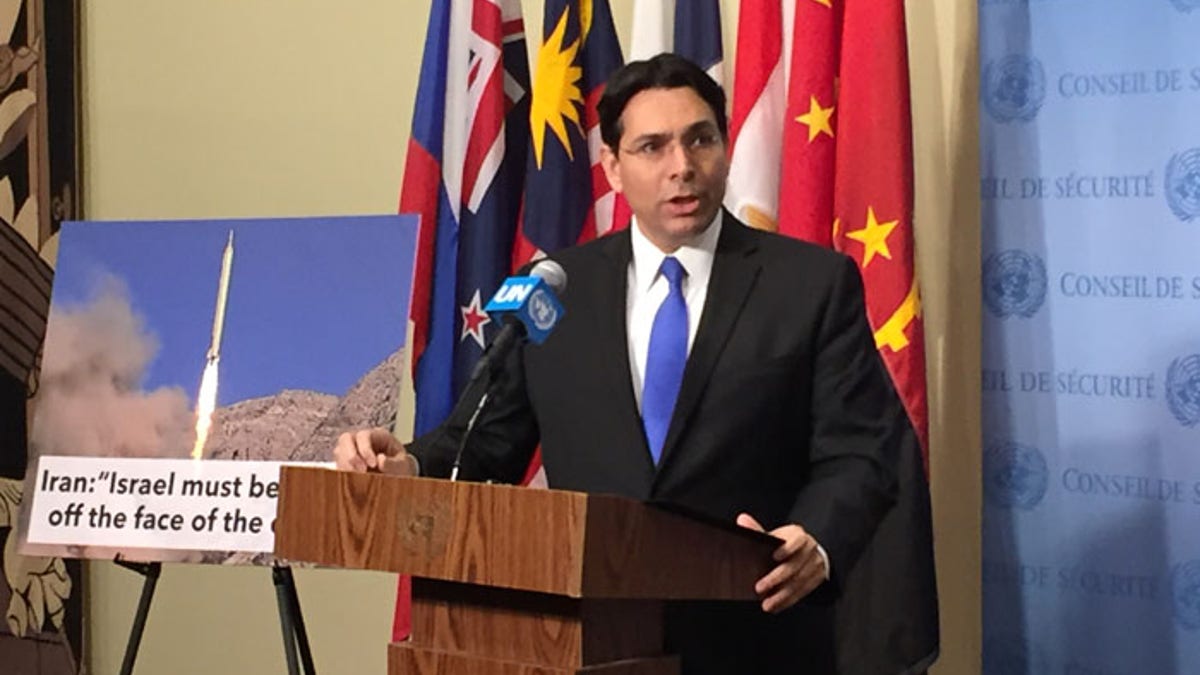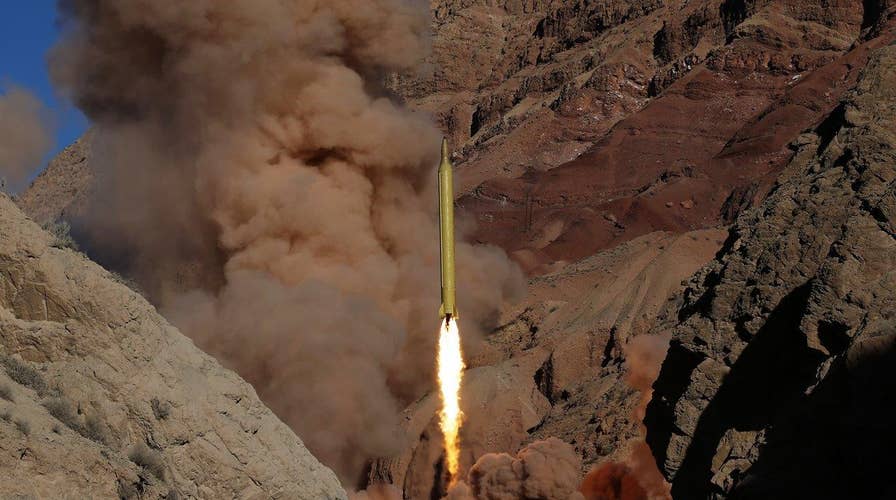The United Nations Security Council was huddling Monday in a meeting called by the U.S. to discuss Iran’s “provocative and destabilizing” launch last week of long-range missiles marked with threats to Israel.
The closed meeting was in addition to one already scheduled in which the Security Council was to discuss the latest developments in Syria. The U.S., which brokered the deal with Iran that ended most international sanctions in exchange for Tehran’s pledge not to pursue nuclear weapons, called the meeting.
“We condemn such threats against another UN member-state and one of our closest allies.”
“We condemn such threats against another UN member-state and one of our closest allies,” U.S. Ambassador to the UN Samantha Power said in a statement that labeled Iran’s actions as “provocative and destabilizing.”
There is dispute over whether the missile tests last Tuesday and Wednesday violated terms of the nuclear deal, but they are believed to have violated earlier UN resolutions limiting Iran’s missile program. Perhaps more alarming, the missiles tested last week were emblazoned with threats against the Jewish state.

Israeli UN Ambassador Danny Danon called on the world powers to send a strong message to Iran.
Iranian footage of the launches showed an Israeli flag painted on the ground at the entrance of a missile silo, where Iranian military personnel trample over it going in and out. The footage also showed a photo of a missile with the words “Israel must be wiped out” written in Hebrew.
It is unclear whether the U.S. can convince fellow veto-wielding countries on the council, Russia and China, to join the West in holding Tehran to task.
Russia is signaling that it will hamper any attempt to punish Iran for the ballistic missile launches. Russian envoy to the UN Vitaly Churkin said that Iran has not defied sanctions, while British Ambassador Matthew Rycroft called the Islamic Republic's actions "blatant disregard" of the UN ballistic missile sanctions.
The Security Council's five permanent members are the U.S., United Kingdom, France, China and Russia. The 10 non-permanent members currently serving in the Council are: Angola, Egypt, Japan, Malaysia, New Zealand, Senegal, Spain, Ukraine, Uruguay and Venezuela
Israeli Ambassador to the UN Danny Danon said the ballistic missile launches are a "pivotal historic moment" that the international community must act on.
"Ignoring Iran’s violations will give a green light for continuing nuclear missile tests,” Danon said. "History has taught us that we cannot bury our heads in the sand, action must be taken against Iran.”


